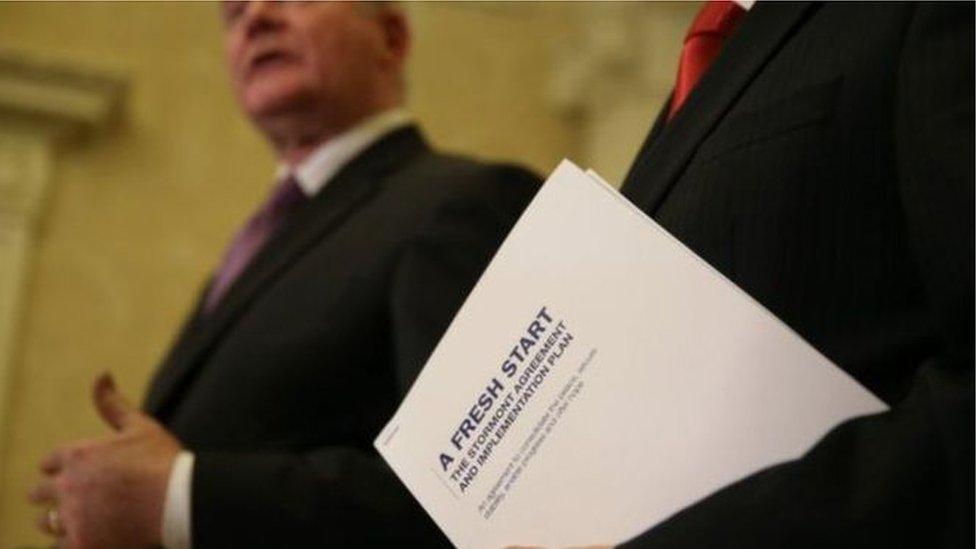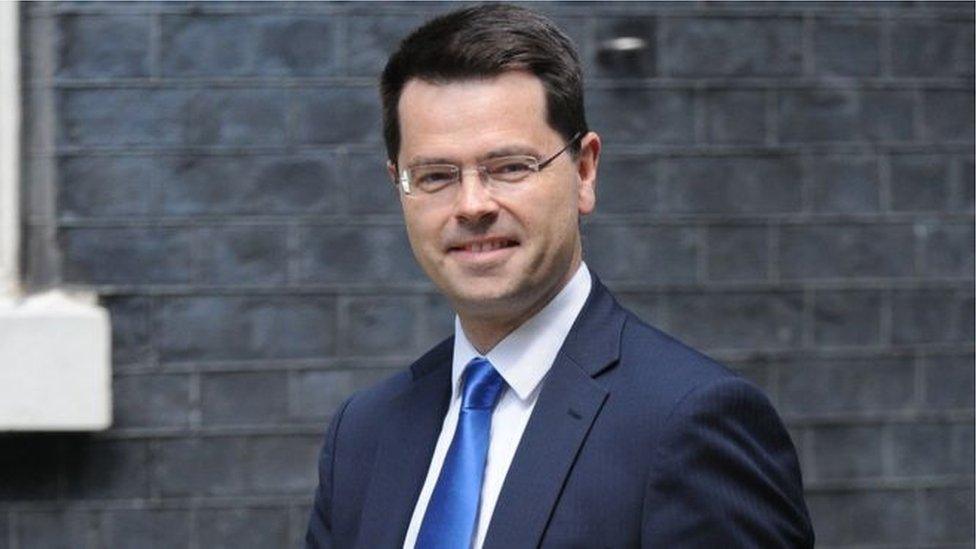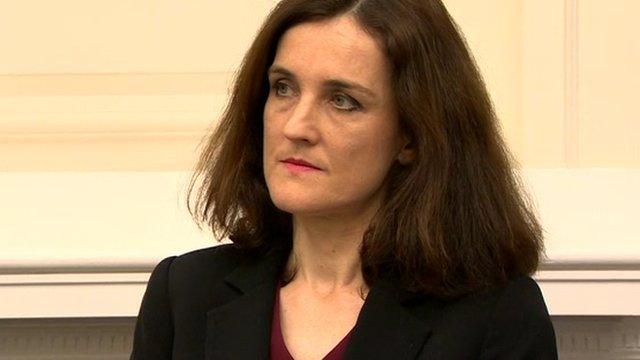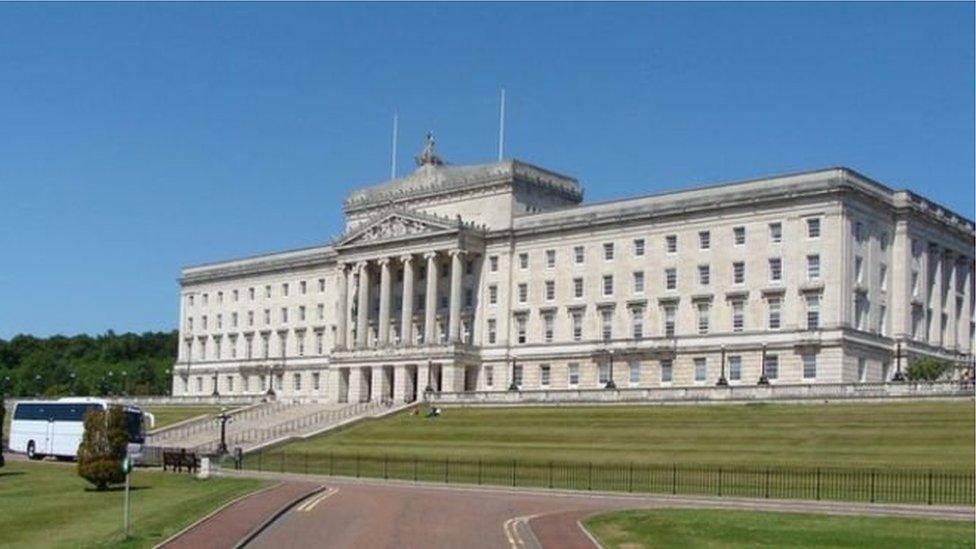The Fresh Start Agreement one year on
- Published

The 'Fresh Start' deal was agreed in 2015 after 10 weeks of negotiations
One year on, how does the Fresh Start Agreement stand the test of time.
On the upside, it put to an end the era of fantasy budgets and Stormont teetering on a budgetary precipice.
Instead, the two-party, two-government, deal ushered in a relatively stable period of two-party government, with the Ulster Unionists and the SDLP taking advantage of the Fresh Start arrangements for opposition.
Stormont has slimmed down its departments, paid off hundreds of civil servants under a voluntary exit scheme (although the unions don't view that as a plus), put in place preparations for cutting the local rate of Corporation Tax and set up a £585m mitigation package for those adversely impacted by Westminster's welfare changes.
Around 80% of those changes have already been implemented in Northern Ireland.
On the downside, the Fresh Start deal did not resolve the difficult issues concerning the legacy of the troubles.
A series of new agencies have been talked about at least since the former US envoy Richard Haass failed to make a breakthrough. But they remain stillborn, as do proposals from the Lord Chief Justice to accelerate the handling of inquests into contentious killings, many involving the police and army.
The reason? A continuing stand-off between the UK government and Sinn Féin (with the DUP also in the mix) over what safeguards should be put in place to protect information regarded as important to UK national security.
'Brexit and Trump'
Whilst the lack of movement for troubles victims is Fresh Start's most obvious Achilles' heel, progress on combating paramilitarism or developing new ways to handle tensions over flags or parades has been patchy to say the least.
A three-strong independent panel has suggested ways in which the authorities should start to tackle the paramilitaries.
However a new four-strong monitoring body has yet to come into existence. Moreover anyone listening to Kevin Magee's interview this week with a man unable to quit the UDA, or spotting the all too regular reports on paramilitary kneecapping, would be justified in questioning how much has changed out on the streets beyond Stormont.
The Ulster Unionist leader Mike Nesbitt told Good Morning Ulster that Fresh Start has been taken over by events, namely Brexit and Trump.
Flicking through for example, the section of the deal which documents Irish government financial support for Stormont, it is notable how much the deal takes for granted continuing European Union assistance.
On top of that the flagship corporation tax cut will lose much of its lustre if it's only marginally below a future Trump administration's headline rate.
As a counter, though, Fresh Start advocates might argue that we would be in a worse position if we were dealing with the demise of devolution in addition to the latest international headwinds.
I remain a fan of Fresh Start, albeit for non-political reasons.
The crisis talks of 2013 and 2014 seriously disrupted my Christmas preparations. Like it or not, the Fresh Start signatories at least got their act together in November.
Now excuse me whilst I have a word with the UK and EU Brexit negotiators about the need for family friendly deadlines.
- Published17 November 2016

- Published17 November 2015
- Published17 November 2015

- Published29 December 2015
